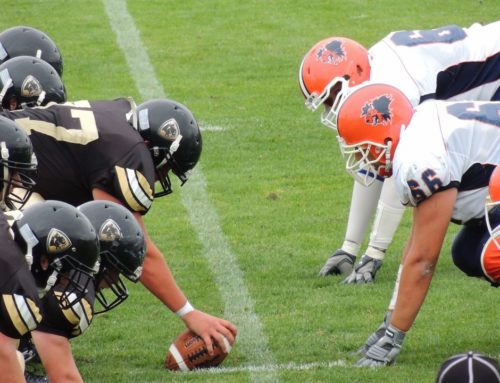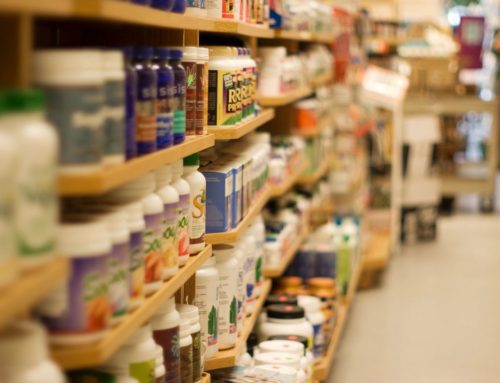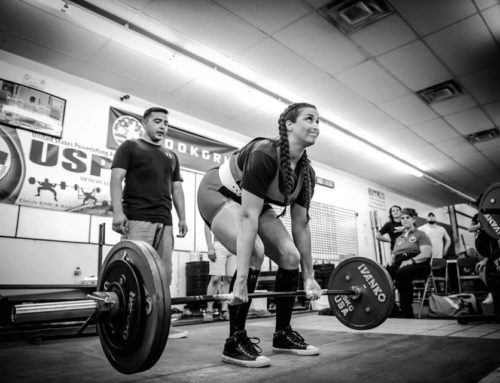In general, talking about supplements with most people is a slippery slope as many don’t understand the role supplements play, coupled with the fact that social media’s “fitness influencers” will pedal anything to make a quick buck or find attention.
For the record, supplements are precisely that; they supplement an already existing healthy nutrition & training plan. They do NOT take the place of a natural whole food diet, or are they meant to fill gaps in your training, rest, and recovery protocol.
You also need to understand that 99% of social media influencers are NOT experts in their fields. Most do not even work in a gym, have real clients, or deal with athletes. They preach their quack hacks to naive or uneducated people in the hopes of boosting their follower count.
SUPPLEMENTS ARE NOT MAGIC POTIONS FROM FAIRYTALE LAND!
So before we get into supplements, we first realize that they are—as the name implies—supplements. They supplement your usual healthy eating. They don’t replace it. If you aren’t eating correctly, start. Then, when you have that down, you can worry about supplements.
And as any coach reading this will know, we’ve all had “the conversation.”
Player: Coach, what supplements can I take to get bigger/faster/stronger/leaner, etc.?
Coach: Well, what did you eat today?
Player: Well, today I had some Fruit Loops, a Monster, Pizza Rolls, and a Snickers bar.
Coach: {head explodes}
Most of the best supplements for football are cheap & not mainstream as it’s not as attractive as talking about the latest “Yoked White Rhino Ultra-Test 3000 Capsules” or whatever ridiculous name they slapped on it.
While we’re at it, STOP talking SARM’s, you don’t understand the science of them, and neither do the people selling them. (That article is coming soon).
When it comes to supplements to improve football ability both in the weight room and on the field, go:
-Simple
-Cheap
-Effective
-Know why you’re taking what you’re taking
Here are the TOP TEN supplements to help you get faster, bigger, stronger, and more explosive for football.
1. Protein: Now, before I get into this, your protein needs to be prioritized with natural foods. Because of your school schedules and the recent price of meat supplementing with shakes makes sense. You can’t exactly whip out tuna sandwiches in biology class, nor do you have the time between class and practices to digest protein-heavy meals. You still need to shoot for around 80% of total protein with real food; the other 20% can come from shakes.
Protein powder is excellent for football training, especially for high school and college players, because it’s so easy to have around. You can quickly drink it in the halls, on the way to class, or at your locker. It is also very cheap & convenient. While it may seem like putting out $45-$60 upfront is expensive, the truth is most protein shakes made at home with two scoops and water come out to around $2.75. For 50 grams or more of protein and minimal carbs and fat, that’s impossible to beat. And it’s ideal post-workout. You train hard, so get the nutrients into your system as quickly as possible; this helps you recover faster. Recovering faster means you can train harder, get bigger, stronger, and faster–simple. However, don’t expect to drink a few shakes and wake up looking like Danielle Hunter.
Start with two shakes per day—one post-workout and one before bed.
When you start, if you are explosively spackling the toilet or smell like Mt. Saint Helen’s erupted, back it down to one scoop per shake until your digestive tract gets used to it.
My top-ranked protein powers: Syntrax Nectar, Transparent Labs 100% Grass Fed & Kaged Whey Isolate
2. L-tyrosine: L-tyrosine is one of the most underrated supplements out there!
TL-tyrosine isn’t a base supplement, but it’s a staple around here. Most people have never even heard of this amino acid, so what’s the big deal?
Again, it’s tough to hype up a supplement that costs less than 15 bucks. L-tyrosine is a precursor to adrenaline and blocks the movement of tryptophan (the stuff in turkey that makes your fat uncle fall into a coma after Thanksgiving dinner) across the brain. It’s capable of waking you up, firing up the central nervous system, and getting your brain right. It gets you “up” without causing you to be jittery or cranked out like ephedrine used to do. This is huge for both training and football games. Combined with some caffeine, it’s an unbelievable pre-game/workout supplement.
Don’t overuse this stuff. Like everything else on Earth, the more you use it, the more the body adapts. In-season, save it for game day. In the weight room, please keep it for the big PR days. About 45 minutes pre-lift or pre-game, take l-tyrosine cap. You can combine these with a caffeine tablet for maximum effect. Typical dosage ranges from 500mg to 2000mg a day. Start at 500mg at first.
3. ZMA: Again, ZMA might be the most underrated supplement in the world when it comes to recovering from training. Studies have shown that athletes, especially football players, are deficient in magnesium. The harder you train, the more the minerals are burned up, which can lead to poor sleep quality and achy joints.
By taking ZMA (zinc, magnesium, and vitamin B6), you get a much more restful, deep sleep. This alone makes it almost anabolic. Studies have shown that simply by supplementing with ZMA, you can increase your testosterone levels. You spend a ton of time training, lifting, running, and practicing football. You have to balance that with an equal amount of recovery, and there’s nothing better for recovery than sleep.
Biotest’s ZMA is probably the best out there, but there are many other good ones.
4. Caffeine: This one is tricky. Now before some parent starts lecturing me on recommending caffeine, realize I have probably seen your kids overconsume soda, walk in with some hipster Starbucks MochaFrappaSoyCapaLatte with extra sugar. I have watched most of them slam enough Pre-Workout that it would give a killer whale heart arrhythmia and wash it down with a Reign Energy Drink. But as soon as I mention a caffeine pill, everyone losses their minds, so spare me the lecture!
For the record, if you are young and in good shape & don’t spend 90% of your free time watching TV, social media, or playing video games, you should naturally have too much energy already.
For the more mature football player, caffeine tablets can be a lifesaver. They get you focused, get the nervous system fired up, and wake you up. This is especially helpful after a long day of classes, work, or playing Call of Duty all night.
Your best bet is to buy a bottle of caffeine tablets. They’re super cheap and safe. One tablet is equal to a cup of coffee. And all you need is one. They’re much more potent than actually drinking your caffeine. Take one tablet 45 minutes before a big workout, practice, or game. Again, save it for the big ones. If you keep hammering away, it’ll lose its effectiveness. You should take a week off from caffeine every eight weeks or so. That means completely off—no tablets, no coffee, no soda or energy drinks. If you’re suffering during that week, you’ve been relying on the stuff too much.
If you want to have a huge day, combine one caffeine tablet with l-tyrosine. Drink this down and take a very short nap (15 minutes). As you wake up, the cocktail will start kicking in, and by the time you hit the field, your switch will be flipped to kill mode.
5. Fish/Krill Oil: This is another base supplement, and something about it bores the hell out of most football players. Who cares about heart health? Even if we put the heart health benefits aside, fish oil is still beneficial for football because of its anti-inflammatory properties. Every time you lift, every time you practice, and every time you take or give a hit, you’re creating inflammation. The longer you stay this way, the longer you’re sore, tight, and unable to train at 100 percent. The quicker you squash inflammation, the faster you can get back to training or on the field at full strength. This alone is invaluable.
By prioritizing sleep & protein, eating right, and killing inflammation as quickly as possible, you will be able to almost out-train everyone at your level, assuming your work ethic is there.
Think about that the next time you have an extra 20 bucks in your pocket. Are you going to buy some fake testosterone jacked & juicy knock-off pill, pee out your money along with pieces of your liver, or are you going to do the smart thing, make the boring choice, and get some krill oil so you can recover faster and train harder than everyone?
1000mg-2000mg daily is all in the recommended range for active teens. I prefer Krill Oil instead of fish oil as krill stays at the bottom out of the toxic mercury levels, and it doesn’t give you the dreaded “fish burps.”
Besides heart health, here is another bonus:
A review of 16 studies revealed that omega-3 fatty acids improved memory, attention, learning, impulsivity, and hyperactivity, all of which are often affected by ADHD.
A 16-week study of 79 boys showed that taking 1,300 mg of omega-3s daily improved attention in those with and without ADHD.
What’s more, an extensive review of 52 studies concluded that dietary modifications and fish oil supplements were two of the most promising techniques to reduce ADHD symptoms in children.
I like Bronson Antarctic Krill Oil
or Jocko’s Krill Oil.
6. Multivitamin and minerals: Here’s another dull, base supplement that is indispensable. If you want to perform at the highest possible level, every cell in your system has to be functioning correctly. Taking a good multivitamin and mineral support can help ensure that your body is replacing the nutrients you’re burning up in your training.
Despite all the “know it alls” opinions, you need to be taking a good multivitamin and a trace mineral blend. You have a crazy amount of hormones being made daily in your body. You are building muscle, and you also have a high muscle cell turnover rate. (Pay attention in class when cell apoptosis is being covered) You use up more micro-nutrients on a day-to-day basis than most people.
Even if you are eating a clean, nutrient-dense & diverse diet, our foods no longer contain the nutrient levels they once did. There isn’t any way you’re getting in all the minerals you need. The fact is most football players are woefully deficient in many micro-nutrients like vitamin D, magnesium, zinc, and copper.
But you have to get a good product. The Flinstones chewable won’t cut it. A good multi-product will require you to take 2–3 pills per day to get the total dose. Take one with breakfast and one pre-workout. This ensures that you get a nice, steady flow of nutrients, and you replace anything you lose quickly.
I like Thorne Basic Nutrient 2/Day or Pure Encapsulations Nutrient 950
7. Vitamin C: Vitamin C is included in all multivitamin products, but athletes need more. It also has some anti-inflammatory properties. Any time you put stress on the body, you need more vitamin C.
Are you training hard? You need more vitamin C. Stayed up late? You need more vitamin C. Had a long practice where you were sweating enough to fill a bathtub? You need more vitamin C. Vitamin C also keeps your immune system humming. You can’t train when you’re sick, so don’t get sick.
If it’s scorching hot out, you need more vitamin C because it’s water soluble and will be lost when you sweat a lot. But it would be best if you still took it even in the winter. Make sure you take 500 mg with your vitamins about 30 minutes before your training. Take 500 mg up to three times per day.
8. Zinc: Zinc is one of the most anabolic minerals on the planet. While it’s included in most of the good multi-products, it usually isn’t enough.
Zinc is also a mineral. When combined with magnesium, it can help you sleep much better and more deeply (it’s the “Z” in ZMA). Again, you don’t hear much about zinc because it’s cheap. You can get a bottle of zinc for under $10.00 on Amazon.
Look for zinc products where the source ends in “-ate” (e.g., zinc gluconate). This is true for most minerals. When taking zinc tabs, do so with a meal. Taking them on an empty stomach can make you feel like you have the stomach flu on a tug boat leaving Bangladesh.
9. Coconut & Avocado Oil: The low fat mania over the last two decades has many nutritional victims, none more so than coconut & avocado oil. These extremely inexpensive but amazingly potent oils are fantastic when it comes to killing inflammation, combating fatigue, and adding quality, healthy fats to your diet.
You’ll notice that the oil is mainly saturated fat. Don’t be afraid. You aren’t going to drop dead of a heart attack from taking it. Remember that saturated fat is one way to increase natural testosterone levels. Add a tablespoon to your protein shakes, and you’re good to go.
10. Vitamin D: OK, stay with me on this last one. Vitamin D is a term that refers to several compounds. The form of vitamin D, 1,25-dihydroxy vitamin D or calcitriol, that is made by the kidneys and circulated in the bloodstream is a hormone. However, the majority of vitamin D in the circulation, 25-hydroxyvitamin D or calcidiol, is not a hormone, nor is its precursor vitamin D3 or cholecalciferol. Therefore, the majority of “vitamin D” in the body is not a hormone, nor will it be converted to a hormone before being used, but it is a nutrient.
Vitamin D is known to be essential for calcium homeostasis and bone metabolism. It also has substantial direct effects on skeletal muscle. Higher serum levels of vitamin D are associated with reduced injury rates and improved sports performance. In a subset of the population, vitamin D appears to play a role in muscle strength, injury prevention, and sports performance. We could go down an endless rabbit hole as to why vitamin D has such a crucial role in athletic performance. (There is plenty of research on athletes and vitamin D out there) I want you to understand that athletes in demanding sports require and uptake vitamin D at a much higher rate than everyone else. Always take vitamin D with vitamin K. Vitamin K is what shuttles it to your bones, among other things.
I use this one every day: Bronson D3 + K2.
For those of you that want to put your athletic careers in the hands of hopes & dreams, continue to eat your McDonald’s nuggies, drink your Bang and live off candy. For the serious top performers, they know that the small details matter & they also possess the discipline to prioritize what they feed their bodies. The small things all add up to big changes. Solid nutrition, micronutrient supplementation, quality sleep, mobility work, and recovery methods are the most forgotten performance-enhancing things there is, period. These are just some of the things that separate wannabes from real athletes.
-SB
Next: The Strength Barracks “Off season training, why they return each year slow & week”



